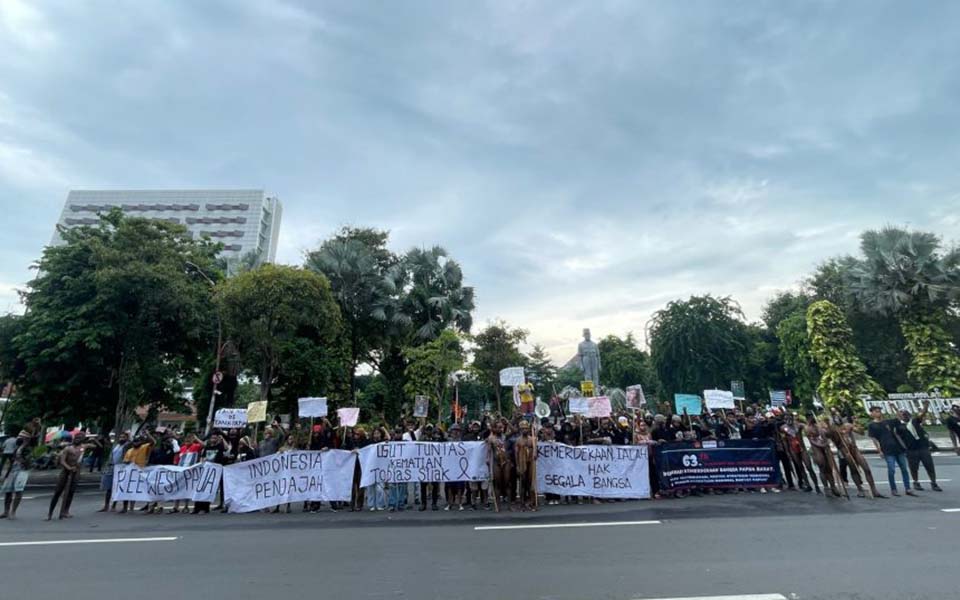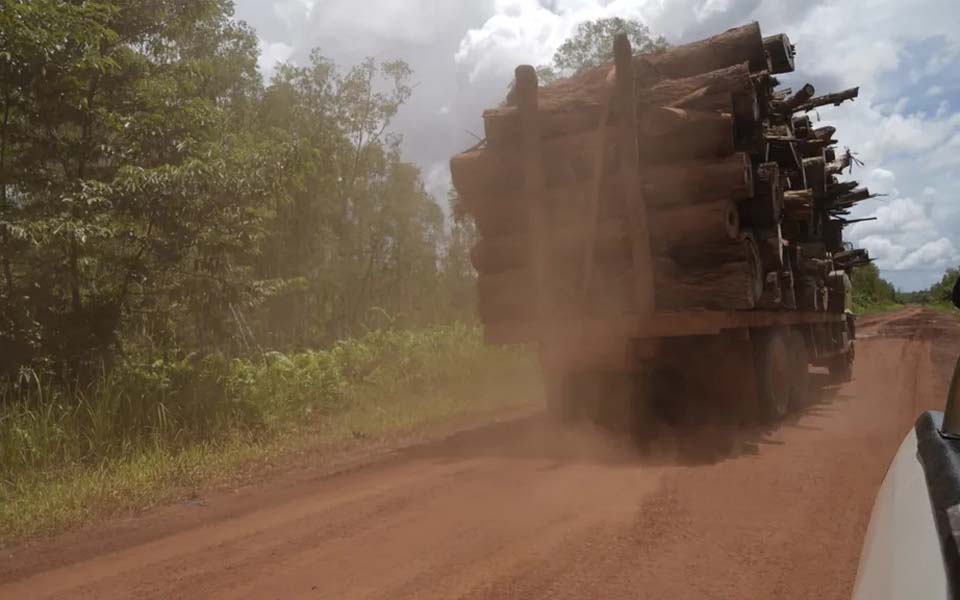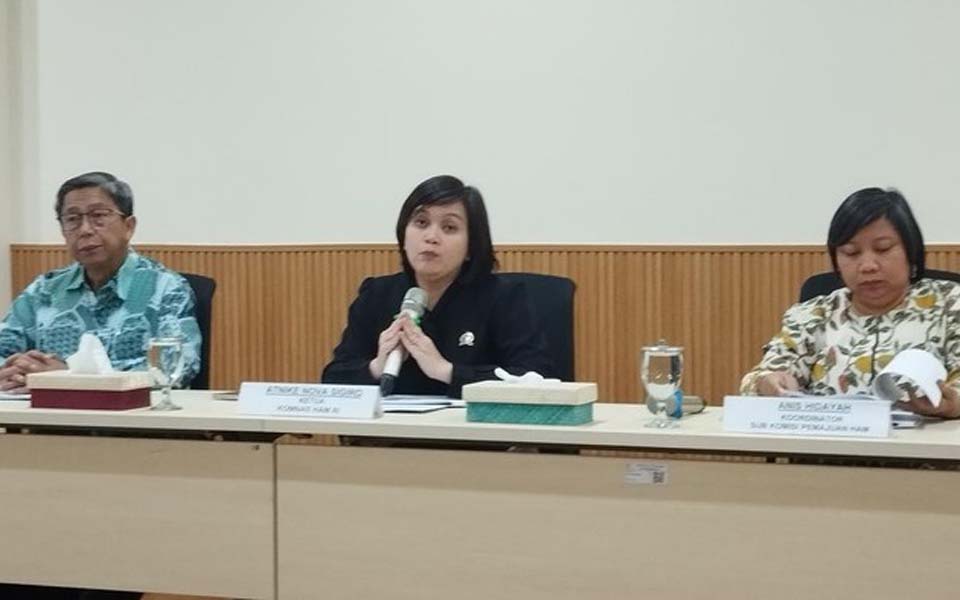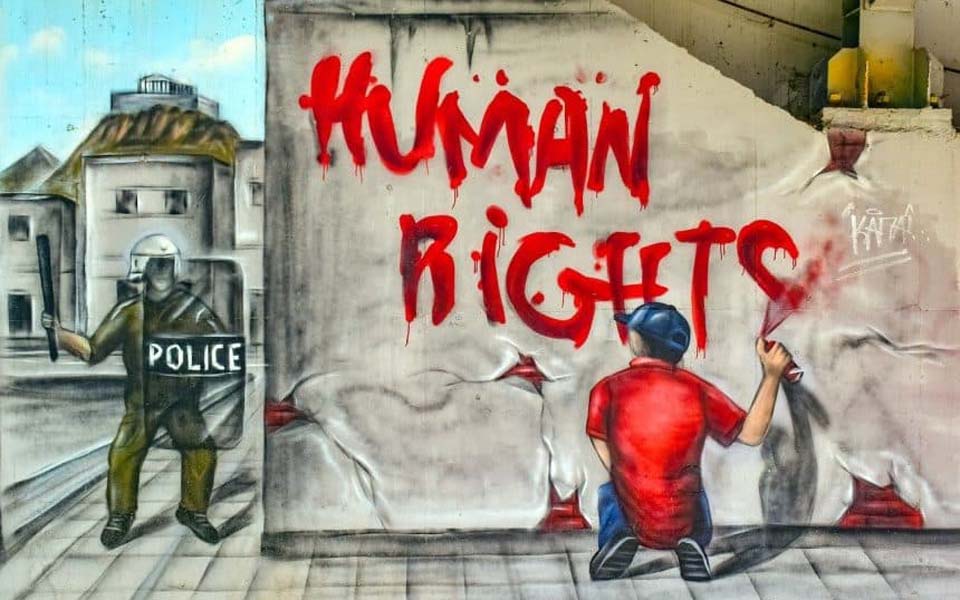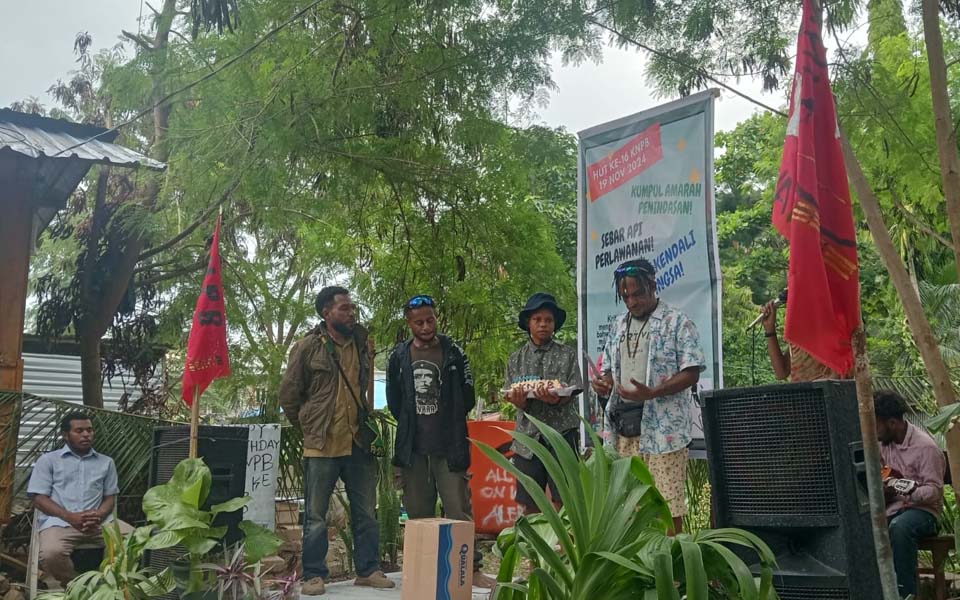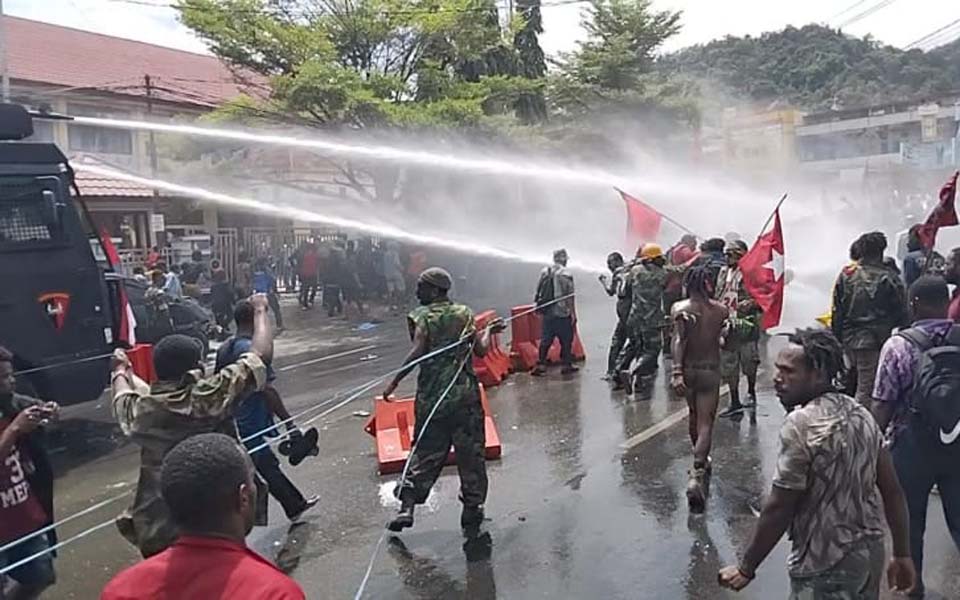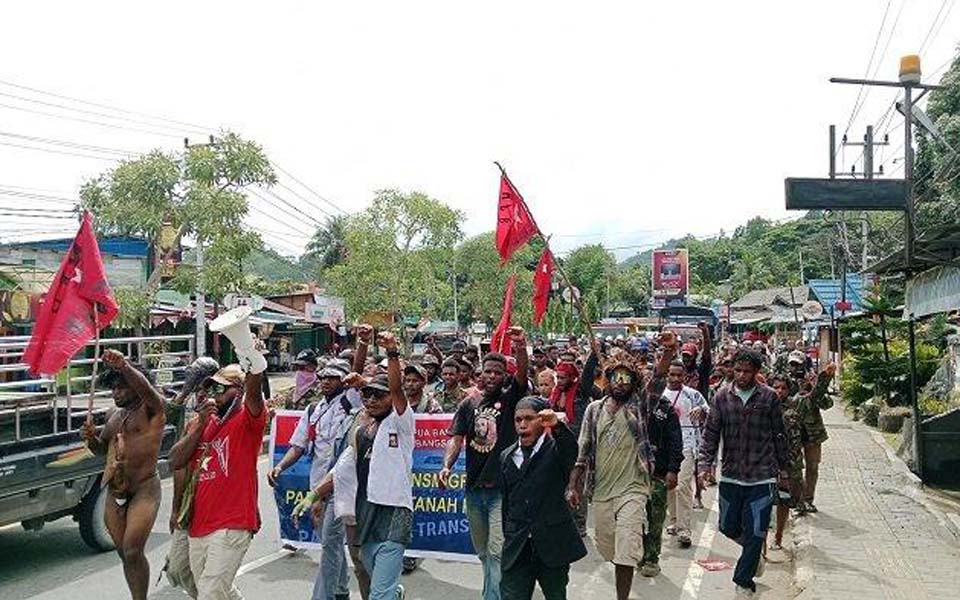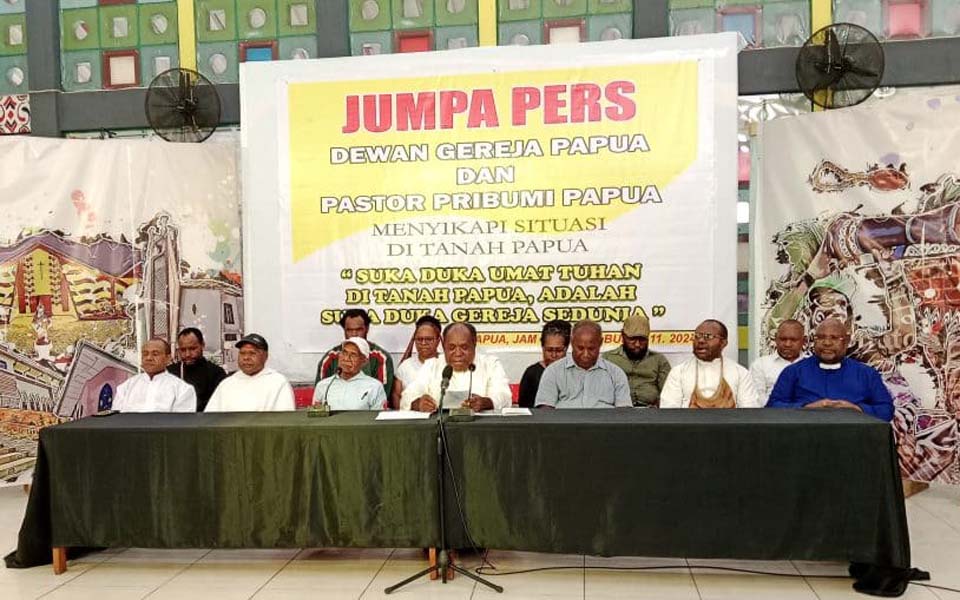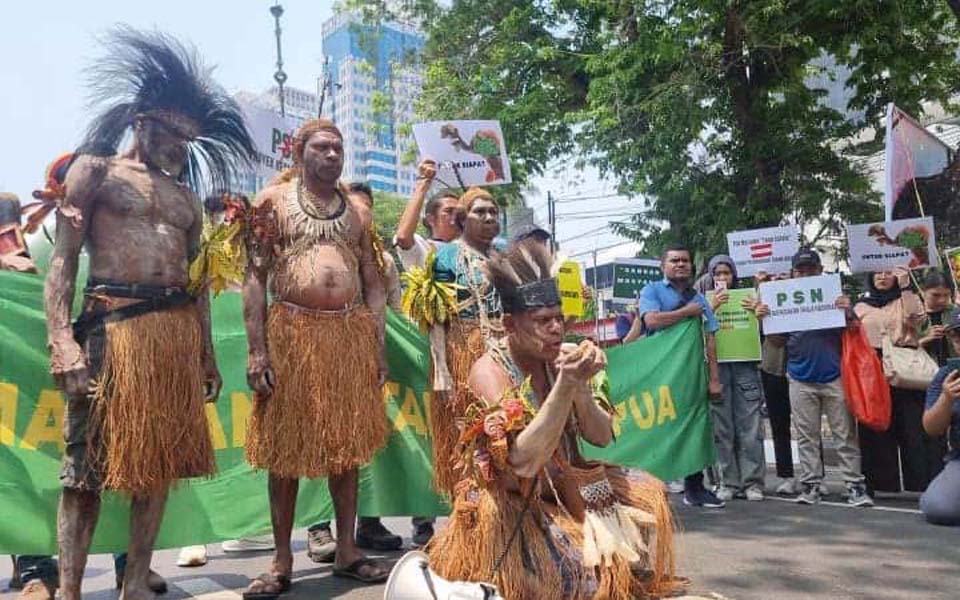Sorong – The Papua Student Alliance (AMP), the Indonesian People's Front for West Papua (FRI-WP) and the All-Surabaya Papua High School and University Students Association (IPMAPA Surabaya) have expressed their firm opposition to National Strategic Projects (PSN), the transmigration program and military mobilisation in Papua.
This statement was made on December 1 during a commemoration marking 63 years since the declaration of West Papua's independence in the East Java provincial capital of Surabaya.
AMP field coordinator Yulius Magai highlighted the revival of the regular transmigration program, which he called a form of "settler colonialism". This program is considered to be aimed at suppressing the existence of indigenous Papuans (OAP) and is similar to the colonial practices against Aboriginal tribes in Australia.
"Since 1964, this program has transferred 78,000 families from outside Papua. After being stopped in 1998, waves of migration continued to occur, moreover it was exacerbated by the new autonomous regional policy (DOB)", said Magai in a press release received by Jubi.
As a consequence, the migrant population in Papua is now almost equivalent to the number of indigenous Papuans with a ratio of 50:50.
The alliance also criticized national strategic projects which are seen as damaging the environment and violating the rights of indigenous peoples. Projects such as the Warim Block and the Wabu Block are said to accelerate the exploitation of natural resources, worsen deforestation and damage customary land.
"This PSN is just a tool of exploitation that is detrimental to the Papuan community", added IPMAPA Chairperson Epranus Tabuni.
The Alliance is demanding that the government immediately stop the transmigration program, revoke the special autonomy policy and stop the formation of a new autonomous regions (DOB). They also requested that journalists be given access to Papua, that the military be withdrawn from the region and cases of human rights violations such as the murder of Tobias Silak and Tarina Murib to be resolved.
In addition to this, they called for an end to national strategic projects that are seizing customary land in Merauke, the release of Papuan political prisoners as well as the closure of large mining companies such as PT Freeport Indonesia.
On the other hand, the Alliance called for national unity between the Papuan people and all of the oppressed Indonesian people. "Unity is the key to fighting colonial capitalism. We must unite, not be divided", they said.
At the end of the statement, they also asked for international support to fight for self-determination for the Papuan people.
Notes
Although it is widely held that West Papua declared independence from Indonesia on December 1, 1961, this actually marks the date when the Morning Star flag was first raised alongside the Dutch flag in an officially sanctioned ceremony in Jayapura, then called Hollandia. The first declaration of independence actually took place on July 1, 1971 when the Free Papua Organisation (OPM) unilaterally proclaimed West Papua as an independent democratic republic.
[Translated by James Balowski. The original title of the article was "Tolak PSN Dan Transmigrasi, Aliansi Mahasiswa Papua Se-Surabaya Sampaikan Pernyataan Sikap".]





